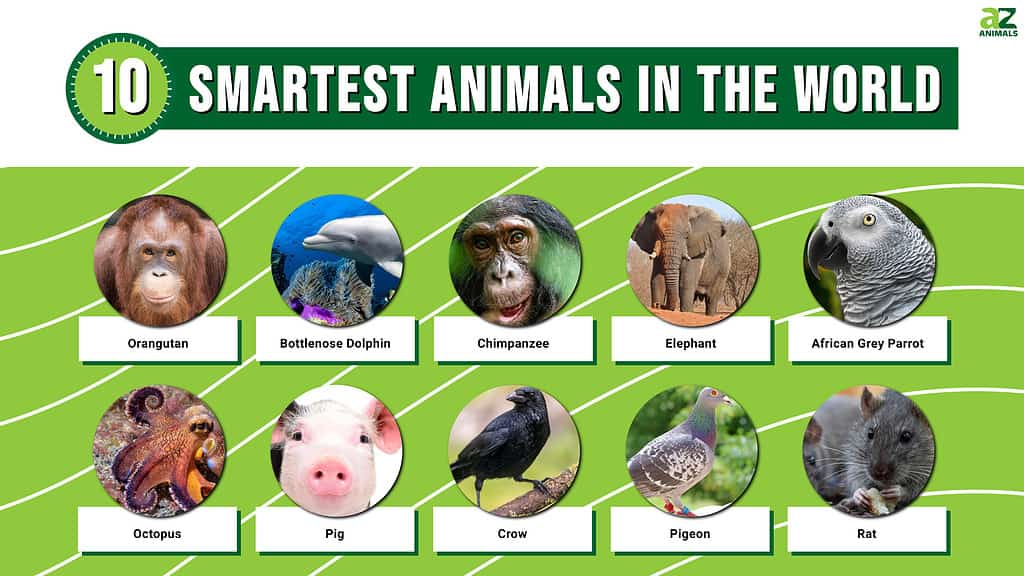Unlock Farm Animals' Remarkable Intelligence

Have you ever wondered how smart are farm animals? Beyond their roles in agriculture, these creatures exhibit complex behaviors and surprising levels of cognitive abilities. Let's delve into the fascinating world of farm animal intelligence, exploring how these often-underrated species demonstrate remarkable problem-solving skills, emotional depth, and social structures. Prepare to be amazed!
Understanding Cognitive Farm Animals Behaviour
Historically, we've underestimated the cognitive abilities of farm animals. These animals are often seen as mere providers of milk, meat, or wool. However, recent research paints a different picture. Farm animals exhibit behaviors that indicate a high level of cognition and emotional awareness. So, let's start by exploring what makes a farm animal smart.
The Power of Problem-Solving
Problem-solving is a key indicator of Farm Animal Intelligence. Take pigs, for example. Smart pigs are known for their ability to navigate complex mazes and even solve puzzles for food rewards. They can solve problems more effectively than some primate species, showcasing their remarkable cognitive abilities.
Pigs: The Cognitive Powerhouses
Did you know that smart pigs can learn to play video games using a joystick? In a study, pigs demonstrated their ability to manipulate a joystick to move a cursor on a screen, aligning it with a target for a food reward. This task requires not just physical dexterity but also a deep understanding of cause and effect. Isn't that astonishing?
Learn more about the cognitive abilities of smart pigs in the Comversation: Why Pigs are Super Smart and Cognitive Evoolution!
Sheep Smarts: More Than Meets the Eye
Sheep are often stereotyped as docile and not particularly intelligent. However, research shows that they are far from mindless herd followers. Sheep can recognize at least 50 different faces from sheep and humans, displaying a level of facial recognition that rivals some primates. They also demonstrate strong emotional memories, remembering past events and associating them with positive or negative emotions. This ability highlights their emotional depth and cognitive versatility.
The Complex Social Structures of Farm Animals
Animal emotion and social interactions are crucial aspects of farm animal intelligence. Chickens, for example, form complex social hierarchies, exhibit empathy, and even mourn the loss of their flock mates. Their social behaviors are remarkably analogous to those of many bird species, showing that farm birds are not just instinct-driven but also emotionally intelligent.
The Emotional Lives of Farm Animals
Animal emotion is another fascinating dimension of farm animal intelligence. Domesticated species like cows, goats, and horses demonstrate a wide range of emotions. They form strong bonds with each other and with their human caretakers, indicating a deep capacity for emotional attachment.
Cows: More Than Just Dairy Producers
Cows exhibit a rich emotional spectrum, from joy and excitement to sadness and fear. They can form close friendships with other cows and remember positive experiences, such as being groomed or receiving treats. This emotional intelligence challenges our traditional views of cows as mere livestock and highlights their complex inner lives.
Goats: Curious and Playful
Goats are known for their curiosity and playfulness, traits that indicate a high level of Farm Animal Intelligence. They love to explore their environment, solve problems, and interact with their human companions. These playful interactions show that goats are not just fun to be around but also cognitively engaged.
To learn more about the curiosity of goats the Science: The Great Goat Hunt
Why Understanding Farm Animal Intelligence Matters
Knowing how smart are farm animals has practical and ethical implications. Recognizing their cognitive abilities can lead to better welfare practices and more humane treatment. Farm animals deserve respect and consideration, not just for their economic value but for their inherent worth as sentient beings.
Imagine if we could treat farm animals with the same care and respect we give to our beloved pets. By understanding their intelligence and emotional capacities, we can strive to create a more compassionate world for all creatures.
Conclusion
As we've seen, the question of how smart are farm animals reveals a wealth of fascinating insights. Far from being simple-minded creatures, farm animals exhibit remarkable cognitive abilities, emotional depth, and social complexity. Whether it's smart pigs solving puzzles, sheep recognizing faces, or cows forming deep friendships, these animals challenge our perceptions and remind us of their intrinsic value.
Now that you know more about Farm Animal Intelligence and Cognitive Farm Animal Behavior, What action will you take? Will you advocate for better treatment of these remarkable creatures? Will you share this knowledge with others to spread awareness? Click the link to yet other interesting secrets of the world around you.
FAQs
Q: Are all farm animals equally intelligent?
A: While all farm animals exhibit some level of intelligence, the extent and type of cognitive abilities vary among species. For example, pigs and sheep show remarkable problem-solving skills, while cows and goats demonstrate strong emotional intelligence.
Q: Can farm animals feel emotions?
A: Yes, many farm animals exhibit a wide range of emotions, from joy and excitement to sadness and fear. They form strong bonds with each other and with humans, indicating deep emotional capacities.
Q: How does understanding farm animal intelligence affect animal welfare?
A: Recognizing the cognitive and emotional abilities of farm animals can lead to better welfare practices. It encourages more humane treatment and respect for these sentient beings, beyond their economic value.
Q: Do farm animals recognize individual humans?
A: Yes, several studies have shown that sheep and other farm animals can recognize individual humans, demonstrating their facial recognition skills. This ability indicates a high level of cognitive versatility.
Q: What can I do to support better treatment of farm animals?
A: You can support organizations that advocate for animal welfare, promote ethical farming practices, and educate others about the intelligence and emotional capacities of farm animals. Small actions, like choosing ethically-sourced products, can make a big difference.
```
0 Response to " Unlock Farm Animals' Remarkable Intelligence"
Post a Comment